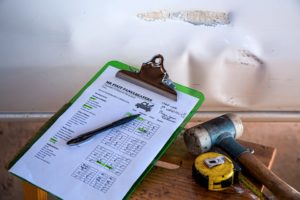Investing on an Apartment: Five Major Costs to Consider

Investing in something huge like an apartment could be very challenging for a first-timer. It requires more than just knowing where it’s located and if it suits your budget.

Purchasing an apartment is also much more complicated than buying a house since you don’t buy the land outright. For first-time buyers, here’s a checklist on what to look for when buying your first apartment.
1. Ownership and Costs
A leasehold property is the one where you have the right to occupy a specific place that you share with other people. This means, if you’re buying an apartment within a building, you have a shared responsibility with the co-owners to maintain the whole structure. Having a part of the ownership means you also have to chip in to maintain facilities like elevators, pools, passageways, and more. These things are all maintained through the collection of annual fees, so make sure you are informed about this before purchasing a place.
2. Existing Lease
With leasehold properties, you have the right to live in a specific property in a set amount of time. As time passes and the lease changes hands, its value also decreases. This is why it is essential to know how much time is left on the lease. If you buy an apartment with less than 80 years left on the lease, you might find yourself struggling to sell the property in at least five years. Having to deal with extending this can cost you money, so make sure you know about this before buying.
3. Renovations
Many people tend to buy a property that is old, but cheaper in price then eventually remodel it into something they actually like. However, not all property owners allow these kinds of alterations, so make sure you know about the property’s rules before purchasing it. Some allow modifications but have some restrictions. Be specific with what changes you are planning to do and talk with your solicitor.
4. Major Repair Costs
Annual fees and service charges should cover general maintenance but may not include significant repairs such as roof repairs or any extensive work. If this happens, you might have to ask who would shoulder such repairs and how costs will be divided amongst owners. That being said, you must prepare yourself for future dilemmas like this.
5. Hidden Costs
At the start of the transaction, you wouldn’t worry about the “hidden costs” since it’s not a present problem. This may include extra charges for updating records if a new person joins or leaves the management. This can add up to your costs, so it is worth planning for.…


